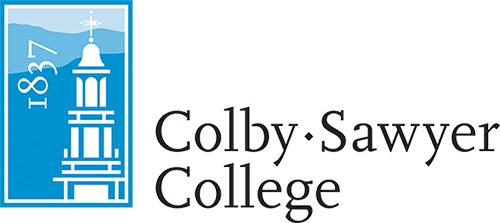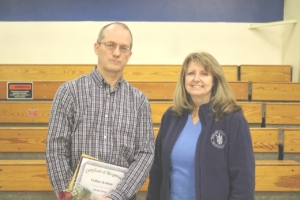
Grade 12
High Honors: Brenna Audet, Molly Babson, Gavin Blanchard, Madison Boynton, Jenna Butler, Joseph Clark, Cameron Falla, Madeline Geidel, Ashley Gillis, Sage Hapgood-Belanger, Samantha Heath, Eleanor Hodgkin, Kayla Hodgkins, Amber Rose Holmes, Andrew Jackson, Christopher Jamison, William Jones, Kyli Julia, Robert King, Morgaine Kmen, Olivia Kunesh, Caitlin Labbe, Noah Labbe, Milo Lani-Caputo, Rivers Malcolm, Tara Maltese, Joshua Peaslee, Jacob Praul, Seth Reed, Hannah Reid, Christina Roy, Jessie Sepulvado, Conor Skehan, Katherine Smith, Braden Soule, Briana Strout, Elizabeth Sugg, Willow Throckmorton-Hansford, Shay Tripp-Laliberty, Kassidy Wade, Hagen Wallace, Jacob Wright, Alana York and Peilin Yu.
Honors: Samantha Allen, Dominque Andrews, Alex Barney, Nina Boudreau, William Bourque, Justin Browne, Arthur Carey, Nicholas Cates, Shannon Cornett, ArizonaLee Crooker, Caitlyn Denico, Damien Doe, Keara Doughty, Travis Dow, Tiffany Doyle, Marshall Dugal, Dominic Durant, Samuel Falla, Courtney Gallagher, Phillip Gilbert, Regina Harmon, Alexis Haskell, Tristan Hawk, Russell Hoffman, Alicia Hotham, Peyton Houghton, Antonio Jacobs, Jack Jowett, Garrett Keezer, Dylan Keller, Paige Leary, Searra Lord, Maverick Lowery, Alexander Mahon, Mya Maxim, Desiree Mayo, Mireya Noa’Dos Santos, Myles Nored, Conner Paine, Dakota Peaslee, Zachary Plourde, Nicholas Rancourt, Saif Rifat, Cole Roberts, Austin Roderick, Hunter Rushing, Caleb Sacks, Anthony Sanborn, Seth Savage, Shaine Staples, Mercedes Tibbetts, Megan To, Jack Tobey, Caden Turcotte, Ashlyn Wing and Jiwei Jeff Ye.
Grade 11
High Honors: Lucy Allen, Jay Austin II, Alec Baker, Julia Basham, Derek Beaulieu, Haley Breton, Abigail Cordts, Lily DeRaps, Alyssha Gil, Annika Gil, Joshua Gower, Tori Grasse, Keimi Henry, Summer Hotham, Sarah Jarosz, Luke Jordan, Parker King, Benjamin Lavoie, Eleena Lee, Stephanie Libby, Jordan Linscott, Brandon Loveland, Reece McGlew, Adalaide Morris, Lyndsie Pelotte, Hunter Praul, Miina Raag-Schmidt, Benjamin Reed, Dominic Rodrigue, Alyssa Savage, Taylor Shute, Jacob Sutter, Brandon Tibbs, Cameron Tyler, Mary-Jane Williams and Richard Winn.
Honors: Adam Bonenfant, Faith Bonnell, Ashlee Bossie, Kole-Tai Carlezon, David Chubbuck Jr, Summer Curran, Colby Cyr, Devin Davis, Vincent Emery, Cheyann Field, Jada Fredette, Mitchell Gamage, Lydia Gilman, Boe Glidden, Bryce Goff, Alyssa Hale, Emma Harvey, Jesse Hayes, Gage Henderson, Nicholas Howard, Ashley Huntley, Emily Jacques, Cameron Johnson, Colby Johnson, Tristan Klemanski, Cole Leclerc, William Leeman, Madison Leonard, Lexigrace Melanson,Kaytie Millay, Jakob Mills, Jamara Moore, Krysta Morris, Nathaniel Mosher, Isaak Peavey, Matthew Picher, Mitchel Reynolds, Andrew Robinson, Katelyn Rollins, Shawn Seigars, Serena Sepulvado, Santasia Sevigny, Alissa Sleeper, Kayla Sleeper, Dominic Smith, Lily Solorzano, Alisha Stevens, MaKenzi Strout, Nicole Taylor, Katelyn Tibbs, Ashleigh Treannie and Matthew Veilleux.
Grade 10
High Honors: Philip Allen, Isabella Bishop, Abbygail Blair, Jane Blanchard, Samantha Box, Trevor Brockway, Eleanor Brown, Zoe Butler, Cody Devaney, Jacob Devaney, Abigail Dumas, Amelia Evans, Addison Gamage, Margaret Gamage, Avril Goodman, Patrick Hanley, Nathan Howell, Emma Hutchinson, Muzzammil Iqbal, Delaney Ireland, Bryan Joslyn Jr, Madyx Kennedy, Sierra LaCroix, Isabela Libby, Emily Lowther, Chiara Mahoney, Jonathan Martinez, Michael Nicholas III, Ian Oliphant, Brian Ouellette, Courtney Paine, Sydni Plummer, Harry Rabideau, Kristin Ray, Acadia Senkbeil, Hanna Spitzer, Emma White, Samuel York and Kelby Young.
Honors: Mara Adams, Brooke Allen, Nicholas Barber, Rylee Bellemare, Everett Blair, Christopher Bourdon, Hailey Brooks, Emma Burtt, Ethan Cates, Anthony Chessa, Adrianna Cook, Joleigh Crockett, Katelynn Dubriel, Jake Emond, Luciano Giampetruzzi, Cameron Gifford, Hailey Haskell, Avery Henningsen, Braydon Hinds, Paeshance-Rae Horan, Keith Knowles, Kaylah Kronillis, Haley Laird, Joanna Linscott, Colby Lloyd, Eva Malcolm, Hailey Mayo, Riley Mayo, Mikala McIntyre, Isaiah Michaud, Gavin Mills, Alicia Nelson, Tyler Ormonde, Olive Padgett, Isabella Parlin, Annaliese Patterson, Lexis Perry, Aiden Pettengill, Allison Roddy, Colby Rumpf, Hailey Sanborn, Paul Slimm, Alessandro Smith, Carly Spencer, Hunter St. Jarre, Aarick Staples, Ariel Stillman, Joshua Tobey, Jake Williams, Mollie Wilson and Dylan Wing.
Grade 9
High Honors: Isaac Baker, Jacob Bentley, Jack Blais, Lilian Bray, Evan Butler, Emily Clark, Tabitha Craig, Colby Cunningham, Isabella DeRose, Luke Desmond, Emma Fortin, Samantha Golden, Trace Harris, Isaac Hayden, Grace Hodgkin, Rachel Huntoon, Emma Jefferson, Grace Kelso, Taidhgin Kimball, Aidan Larrabee, David Martinez – Gosselin, Hayden McMurtry, Adam Ochs, Devon Polley, Lilly Potter, Sarah Praul, Mackenzie Roderick, Abbey Searles, Shawn Searles, Hannah Soule, Natalie Spearin and Lily Vinci.
Honors: Anastasia Ames, Griffin Anderson, Julia Barber, Alana Beggs, Joshua Bonsant, Wyatt Brann, Austin Campbellton, Nathaniel Collins, Hunter Colson, Liberty Crockett, Jasmine Crommett, Daniel Cseak, Caleb Cyr, Madison Devine, Tiana Dingwell, Kaden Doughty, Alexander Drolet, Abigail Dutton, Kelsie Fielder, Jacob Fisher, Chase Folsom, Jenna Gallant, Josette Gilman, Ciera Hamar, Larissa Haskell, Skye Havey, Hayden Hoague, Hannah Huff, Mallory Landry, Lili Lefebvre, Madison Lully, Isavel Lux Soc, Calvin Mason, Robert McCafferty, Wes McGlew, Christian Moon, Rebecca Morton, Brady O’Connor, Abigail Peaslee, Garrett Peebles, Kaden Plourde, Paige Reed, Riley Reitchel, Parker Reynolds, Kadince Rideout, Natasha Ryder-Lewis, Andrew Shaw, Hugo Smith, Hannah Strout – Gordon, Hannah Torrey, Brennen Wade, Samuel Worthley, Emily York and Hannah York.
 Colby-Sawyer College President Susan D. Stuebner has declared Resident Assistant Appreciation Day at Colby-Sawyer, in New London, New Hampshire. Chelsea Perry, of Oakland, a member of the class of 2021 majoring in business administration, is one of 25 Resident Assistants being recognized and thanked for outstanding work supporting all students, developing communities based on individual responsibility and respect for others, and providing opportunities for student learning.
Colby-Sawyer College President Susan D. Stuebner has declared Resident Assistant Appreciation Day at Colby-Sawyer, in New London, New Hampshire. Chelsea Perry, of Oakland, a member of the class of 2021 majoring in business administration, is one of 25 Resident Assistants being recognized and thanked for outstanding work supporting all students, developing communities based on individual responsibility and respect for others, and providing opportunities for student learning.


 Colby-Sawyer College, in New London, New Hampshire, recognizes 234 students for outstanding academic achievement during the 2019 spring semester. To qualify for the Dean’s List, students must achieve a grade-point average of 3.5 or higher on a 4.0 scale while carrying a minimum of 12 credit hours in graded courses.
Colby-Sawyer College, in New London, New Hampshire, recognizes 234 students for outstanding academic achievement during the 2019 spring semester. To qualify for the Dean’s List, students must achieve a grade-point average of 3.5 or higher on a 4.0 scale while carrying a minimum of 12 credit hours in graded courses.

 Bates College, of Lewiston, junior Kirsten Pelletier won NESCAC Softball Pitcher of the Week honors recently from the New England Small College Athletic Conference, headquartered in Hadley, Massachusetts, after propelling the Bobcats to a 4-0 week, including a three-game series sweep of rival Colby.
Bates College, of Lewiston, junior Kirsten Pelletier won NESCAC Softball Pitcher of the Week honors recently from the New England Small College Athletic Conference, headquartered in Hadley, Massachusetts, after propelling the Bobcats to a 4-0 week, including a three-game series sweep of rival Colby.
 Katherine Thompson, of Waterville, was inducted into the Emmanuel College chapter of Sigma Beta Delta, the international honor society in business, management and administration, on Tuesday, March 26th.
Katherine Thompson, of Waterville, was inducted into the Emmanuel College chapter of Sigma Beta Delta, the international honor society in business, management and administration, on Tuesday, March 26th.

 Husson University announced today that Fairfield, ME resident, Mallory Beane, will receive a $3000 Provost’s Leadership Scholarship for the 2018-2019 academic year.
Husson University announced today that Fairfield, ME resident, Mallory Beane, will receive a $3000 Provost’s Leadership Scholarship for the 2018-2019 academic year.